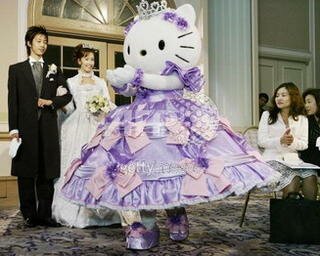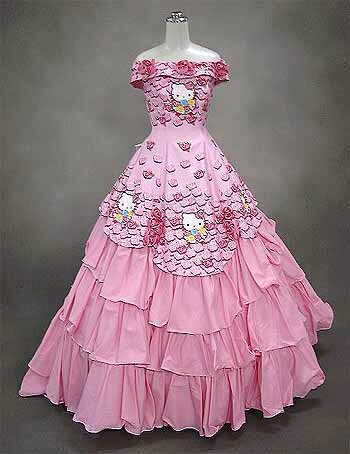American Expat in Southeast Asia ponders America’s moral compass.:

One of the most powerful images from the aftermath of the Southeast
Asian earthquake and tsunamis, was this one from Banda Aceh just days
after the terrible tragedy. The photo above is that of a young man, a
looter, who was beaten into submission and then paraded through the
village square with a placard around his neck that says in Indonesian
"Saya Maling" (I’m a thief).
Without the aid of the police or
militia the photo shows the determination and the will of a altruistic,
righteous and self-disciplined group of people desirous for the return
of law and order to their society. A people who did not require the "whip of tyranny" a people who knew right from wrong.
There
seems to be a troubling confusion here among many of the people here in
Southeast Asia at how many people in the United States could have
exchanged moral clarity for nothing more than feel-good relativism with
regards to the looting that took place in New Orleans.

It’s Blogopoly, the Singapore edition. Go directly to jail! Authorities are looking for a hat-trick! Question: does a minor get tried as an adult when the crime is sedition?:
SINGAPORE : A third person has been charged under the
Sedition Act with promoting feelings of ill-will and hostility between
different races of Singapore.
Gan Huai Shi, 17, faces seven charges of posting racist remarks on his blog site.
Mr Wang offers more, reproducing an item from the unlinkable Straits Times.:
Gan faces seven charges under the Sedition Act for offences he was said to have committed between April 4 and July 16.
He allegedly made four inflammatory comments about Malays and Muslims on the Internet within days of starting his blog.
In one entry on April 4, he allegedly made it clear that he was ‘extremely racist’.
The next day, in two entries within four hours, he was said to have
posted anti-Malay remarks. On April 6, he was allegedly at it again.
From May to July 16, he is accused of making racist comments once a
month on his blog, spouting his hatred for the Malay community.
 In one posting, he also allegedly wrote of his violent tendencies
In one posting, he also allegedly wrote of his violent tendencies
in an entry he described as having ‘explicit and candid content’. He
allegedly wrote how much he wanted to ‘assassinate some important
person with a sniper rifle’.
While the sniper comment would likely fall under some of the zero-tolerance regulations of the post-Columbine US, earning the blogger a possible school expulsion, criminal charges would be unlikely. It seems that expressing racist views in Singapore is almost as dangerous as talking about nepotism.:
FinanceAsia.com, a regional financial magazine based in Hong Kong, recently apologised unreservedly to PM Lee Hsien Loong, SM Goh Chok Tong, MM Lee Kuan Yew, Temasek Holdings and it’s board members.
I’ve
re-produced the two apologies after my post. Furthermore, I’ve
re-produced a 2003 report from the Sydney Morning Herald as well.
All
this came about ‘cos the magazine, in it’s 19 Aug edition on it’s
website, published a report which described Temasek Holdings as "the Lee family trust
This is not the first time such things have happened. Singapore’s leaders have done this to other publications as well.
Let’s
be honest here. People talk about it in their homes, coffeeshops and
stuff. But they don’t say it out in public. It just keeps rolling in
their minds or hearts: The PM is also the Finance Minister. His dad is
MM Lee. The PM’s wife & MM’s daughter-in-law, Ho Ching, is the
executive director and CEO of Temasek Holdings….
You
know, you can sue all you want, get paid for damages and stuff but
people’s perceptions, unspoken aloud as they are, were there even
before any of these publications put it in words. Try to get rid of
that.
Frank Dai looks at China Telecom’s blocking of Skype, PC-to-PC calls are still working fine in Shanghai.
The Hoover Institute’s newest China Leadership review is online.
I don’t believe Michael Moore would even consider using .:
You’ll remember “Fucking USA” singer Park Seong-hwan recently did a song calling Gen. Douglas MacArthur a murderer and accusing him of ordering atrocities during the Korean War. In the song, he does a bit of narration:
Between
verses two and three, Park adds his own narration. “Seize Seoul. There
are girls and ladies there. For three days, Seoul will be yours — UN
Commander Douglas MacArthur, September 1950.” Park says historical
records confirm that this is an authentic quote by the maverick
commander.
 Well, this sparked OhMyNews’ Son Byeong-gwan’s curiousity,
Well, this sparked OhMyNews’ Son Byeong-gwan’s curiousity,
namely as to where the quote came from. So he called up the singer, who
told him he got the quote from a June 25 op-ed by Jang Chang-hun, a
researcher with a center attached to a particular left-wing civic
group. Son then calls up Jang, who says he found the quote via an
Internet search when he was writing a 2002 report, and while he
couldn’t remember the source exactly, he believed it to be Sungkonghoe
University professor Han Hong-gu. Hong, however, denies ever saying
such a thing…
Later on Friday afternoon, however, Son got his answer.
Jang Chang-hun wrote OhMyNews to tell them that he had found the source
of the quote — a North Korean history book that had been translated by
pro-North Korean scholars in Japan in 1972 and retranslated into Korean
in South Korea in 1991. Jang noted, however, that the book did not
attibute sources, either…
North Korea is discovering credit debit culture.:
The . Although deciphering the description of the card on the official North Korean news site. it sounds more like a debit card:
"Six
kinds of currencies can be deposited in a card at a time. With this
card, one can exchange money instantly without going to a money
exchange booth. A card can be shared by several persons… The bank
enjoys popularity among depositors."
"The North Korean Credit Card: Don’t Leave the Country Without It. Actually, Don’t Leave the Country, Full Stop."
ACB has a post on the protests that greeted Hu Jintao on his visit to Canada, noting that Hu was forced to make a face-losing entrance.:
 Although protester groups were prevented from
Although protester groups were prevented from
confronting President Hu directly, their high visibility meant that
they were able to attract considerable attention from the world’s press
whic allowed them to serve as an embarrassing reminder to Beijing that
the outside world is aware of China’s many ‘issues’, even if many
mainland Chinese are not.
As an added bonus to protestors, the
presence of a large group of demonstrators outside the Toronto venue of
one of Hu’s scheduled diner engagements, forced the Chinese president
to humble himself by entering through a back door.
For a
Chinese dignitary, being forced to use a back door or service entrance,
in a manner similar to a cleaner or trade person, is considered to be a
highly degrading act and an extreme loss of face.
Oh when will the West get tired of Musharraf? In the latest outrage, the general provides tips on how to be a millionaire through rape.:
 General Musharraf’s controversiol comments during an interview with the Washington Post has provoked an outrage.
General Musharraf’s controversiol comments during an interview with the Washington Post has provoked an outrage.
The issue concerns Mukhtar Mai, and the General has to say:
You
must understand the environment in Pakistan. This has become a
moneymaking concern. A lot of people say if you want to go abroad and
get a visa for Canada or citizenship and be a millionaire, get yourself
raped.
Nitin, Raven and Arzan have something to say.
Amit Varma has .
Indaus is pleased that India is planning the world’s largest building. AsiaPundit agrees that the design is nice enough, but cautions that large erections typically mark the end of a boom rather than an arrival. (on which, the Shanghai Financial Centre is now under construction):

South Korea has been quietly leaving its footprint around Asia and Central Europe for some time. It has been the second-largest investor in Vietnam for a while now, and it doesn’t surprise me to hear that it’s now the biggest foreign investor in India.:
In one whopping megadeal, South Korea has become the
largest foreign investor in Asia’s second emerging giant, India. On
Aug. 31, Korean steelmaker Posco established a local subsidiary in the
eastern Indian state of Orissa, paving the way for a controversial mill
and mining complex that will cost the world’s fifth largest steelmaker
$12 billion and employ some 40,000 workers once it’s fully operational
in 2010.By the numbers, Korea now tops the list of
countries investing in India since New Delhi launched economic reforms
back in 1991—at more than $14 billion. South Korean firms like Hyundai,
LG and SK Group have carved out a notable presence in the country—the
world’s second largest and a potentially huge market for products like
refrigerators, washing machines and television sets….
Importantly, Korean companies have helped India gain
self-confidence as a manufacturing nation and an exporter with the
potential to rival China in certain industrial sectors.
For those interested in Chinese blog development, check out this research blog and ESNW’s excellent contrast on on-line citizen journalism (or lack thereof) in the US, Hong Kong and China.:
Within
the Chinese mainstream media, there are quality workers with good ideas and
opinions. However, they are often not permitted to articulate those ideas within
the mainstream media. They can write something up, but it may be killed
for reasons that are either opaque or seemingly wrong. They do not
necessarily want to yell "Down with XXX" or "Vindicate YYY"
because XXX will not fall down and YYY will not be vindicated on account of some
more sloganeering. They only want to ask simple questions such as,
"Why are mining disaster victims and their families being kept away from
the press?" or some such.
With the arrival of the Internet, bulletin board
systems proliferated and these mainstream media workers
gravitated to those forums (such as Yannan, Xici Hutong, Tianya Club, etc) in
which they can express their ideas and opinions with like-minded people.
All the while, they continue to work at mainstream media organizations, but
their spare time is for them to use.
This created a unique situation. In the
United States or Hong Kong, mainstream media workers mostly treat the
non-mainstream media with mistrust, contempt and jealousy. In China, the
non-mainstream media sector (related to current news and commentary) is in fact
dominated by the mainstream media workers in exile on their spare time.
Japundit has a post on driver safety, AsiaPundit notes that the Japanese ‘driver-at-fault’ rule holds for most of East Asia (though compensation for pedistarians can vary wildly).:
 …in Japan, if a driver is involved in an accident with a pedestrian,
…in Japan, if a driver is involved in an accident with a pedestrian,
a bicyclist or motorcyclist, the driver is 100% at fault, no matter
what.
This may seem outrageous, especially if you’ve ever
watched school children returning home from school; there’s all sorts
of horseplay involved - little children in yellow hats and clunky red
backpacks chasing each other and darting onto the road. It’s not
unlikely that the hapless Chiba driver was in the wrong place at the
wrong time - that’s why it’s called an “accident.” But let’s face it:
in the eyes of a foreign driver, pedestrians and bicyclists do all
sorts of stupid things in Japan.
They
run out into traffic and wear dark clothing at night, and bicyclists in
particular have the annoying habit of reading manga, smoking cigarettes
and drinking canned coffee, all while holding an umbrella and punching
in email on a cellphone as they navigate a snow-bound Japanese road
constricted down to a single lane because of snow banks and illegally
parked cars.
The Fight Club (aka Parliament) has started again in Taiwan. Jujuflop and Taiwan’s Other Side take a look, from the former:
 In England, the ‘Silly Season’ is when
In England, the ‘Silly Season’ is when
Parliament is in recess, and so the newspapers need to look for silly
stories to replace the normal discussion of political issues. In Taiwan, it starts when the Legislative session starts - because the legislators specialise in silly behaviour.
Thus, it was no real surprise that the first day of the latest session was punctuated by scuffles and water fights.
The main item on the agenda, a policy report by Premier Frank Hsieh,
didn’t happen because opposition legislators blocked the podium, and
one enterprising individual even managed to rip up his speech.
One
female KMT lawmaker splashed tea on the sleeves of Foreign Minister
Mark Chen’s (陳唐山) suit, as scuffles broke out through the morning.
Unhappy
that KMT lawmakers blocked the podium where the premier was scheduled
to speak, DPP lawmakers decided to occupy the seat of the legislative
speaker and rip up the KMT’s placards in one of the day’s more chaotic
episodes.
The KMT lawmakers said they prevented the premier
from speaking to draw attention to questionable measures and suspicions
of impropriety emerging from recent controversies.
The photo is from last year’s memorable food fight. For more on Taiwan, check out Michael Turton’s weekly Taiwan blog roundup.
From Indonesia (via Friskodude) more reasons why you shouldn’t do drugs in Bali.:
I
found out Indonesian law makes no difference between soft ( marijuana)
and hard drugs ( heroine or cocaine ) and don’t separate user from
dealer , because the amount doesn’t matter.
But
as usual, Mr W.Y said :” don’t worry I can get you out, but due to the
circumstances, you will have to pay such amount of money”.
I
was in shock ; All the money I had was about a quarter of what he
wanted , which meant the worst for me : I had to call my mother.
From the very first moment of my arresting , it was my main concern.
But
I had no choice and I did it: She gave me everything she had so did my
closer friends.
We got the money asked which was promptly given to the
lawyer.
I was sent to jail where things got much better: I finally had a mattress , a space to run and met all the foreigners.
But then I started to hear their stories. There were two well defined groups: those who had
given the lawyers what they asked and got a minimum sentence and those
, who despite giving the money asked , got an absurd sentence because
their lawyers put the cash in their pockets and did nothing.
In Singapore, it’s illegal to take durians on the MRT or busses. I thought it was just because of the smell. But if this report is to believed, there may be other safety considerations.:
 Via Global Voices Online, I found this post from Indonesian blog Jalan Sutera noting a press report that current speculation has it the cause of the recent Mandala airlines crash in Medan was an overload of……durians. Three tonnes of them, to be exact.
Via Global Voices Online, I found this post from Indonesian blog Jalan Sutera noting a press report that current speculation has it the cause of the recent Mandala airlines crash in Medan was an overload of……durians. Three tonnes of them, to be exact.
For the record, I hate durians. Can’t stand the smell. And these big, prickly fruits are just plain dangerous.
They grow on huge, very tall trees. I remember being nearly killed
by a ripe, falling durian as a kid when on a visit to a family friend’s
plantation. The bloody thing landed just a metre or so behind me. To
think - death by falling durian. What an ungracious way to go.



 A Reader’s Digest survey conducted in 35 various cities across the globe analysed and tested the politeness and helpfulness of people in each urban centre. More than 2000 separate tests of behaviour were conducted to try and find the world’s most courteous place….
A Reader’s Digest survey conducted in 35 various cities across the globe analysed and tested the politeness and helpfulness of people in each urban centre. More than 2000 separate tests of behaviour were conducted to try and find the world’s most courteous place…. Unlike Hong, the comic book artists of post-WWII era were not so funny. By far the most famous and influential comic book artist of the 1950s was the pseudonymous writer named “Brother Cow,” 牛哥 (1925-1997), whose real name was Lee Fei-meng (李費蒙). Lee was a mainlander who escaped from China and came to Taiwan with the KMT in 1949. His anti-Communist strips were characterized by stupid, Ah-Q looking Chinese characters with buck teeth and bald heads and evil Communist overlords (some of it displaying a very weird sense of ’self-racism’).
Unlike Hong, the comic book artists of post-WWII era were not so funny. By far the most famous and influential comic book artist of the 1950s was the pseudonymous writer named “Brother Cow,” 牛哥 (1925-1997), whose real name was Lee Fei-meng (李費蒙). Lee was a mainlander who escaped from China and came to Taiwan with the KMT in 1949. His anti-Communist strips were characterized by stupid, Ah-Q looking Chinese characters with buck teeth and bald heads and evil Communist overlords (some of it displaying a very weird sense of ’self-racism’).



 This is just a snapshot of the life and times of a Foreign Model in Thailand. Of course there are always exceptions, and we are not accounting for half-Thais and other Asians in the industry, though they can (and do) move seamlessly through these circles.
This is just a snapshot of the life and times of a Foreign Model in Thailand. Of course there are always exceptions, and we are not accounting for half-Thais and other Asians in the industry, though they can (and do) move seamlessly through these circles.
 The Chinese have taken over Diwali well and truly. Houses all over Mumbai have Chinese lights in their balconies ( a very Bombay thing to hang glittering lights in balconies during Diwali). Dirt cheap and almost use and throw (you wont meet anyone who has had these lights for 3 years). They are cheap LEDs, I think and in any case quite unlike the bulbs we owned in our house for 15 odd years when each Diwali meant a few trips to the electrician apart from some of our own pottering with testers and wires.
The Chinese have taken over Diwali well and truly. Houses all over Mumbai have Chinese lights in their balconies ( a very Bombay thing to hang glittering lights in balconies during Diwali). Dirt cheap and almost use and throw (you wont meet anyone who has had these lights for 3 years). They are cheap LEDs, I think and in any case quite unlike the bulbs we owned in our house for 15 odd years when each Diwali meant a few trips to the electrician apart from some of our own pottering with testers and wires.

 Hi, this is me at the Kanazawa New Grand Hotel.
Hi, this is me at the Kanazawa New Grand Hotel.

 Meng Rushun (Shanghainese, Retired Worker)
Meng Rushun (Shanghainese, Retired Worker)









 My wife and I are in Malaysia now on a short term assignment for our
My wife and I are in Malaysia now on a short term assignment for our Not
Not

 I mean real chickens, the ones we have on our table for dinner. Yes,
I mean real chickens, the ones we have on our table for dinner. Yes,
 Former Malaysian deputy premier Anwar Ibrahim said Tuesday he will
Former Malaysian deputy premier Anwar Ibrahim said Tuesday he will






 In one posting, he also allegedly wrote of his violent tendencies
In one posting, he also allegedly wrote of his violent tendencies
 Although protester groups were prevented from
Although protester groups were prevented from



 Via
Via 
































